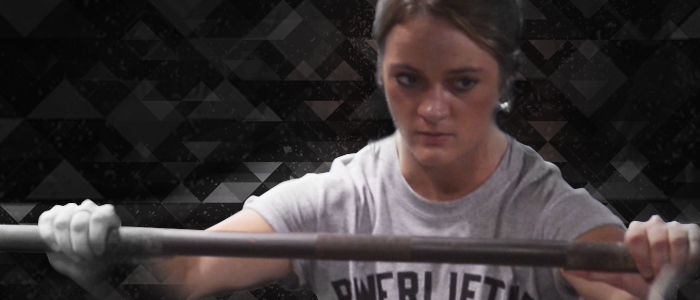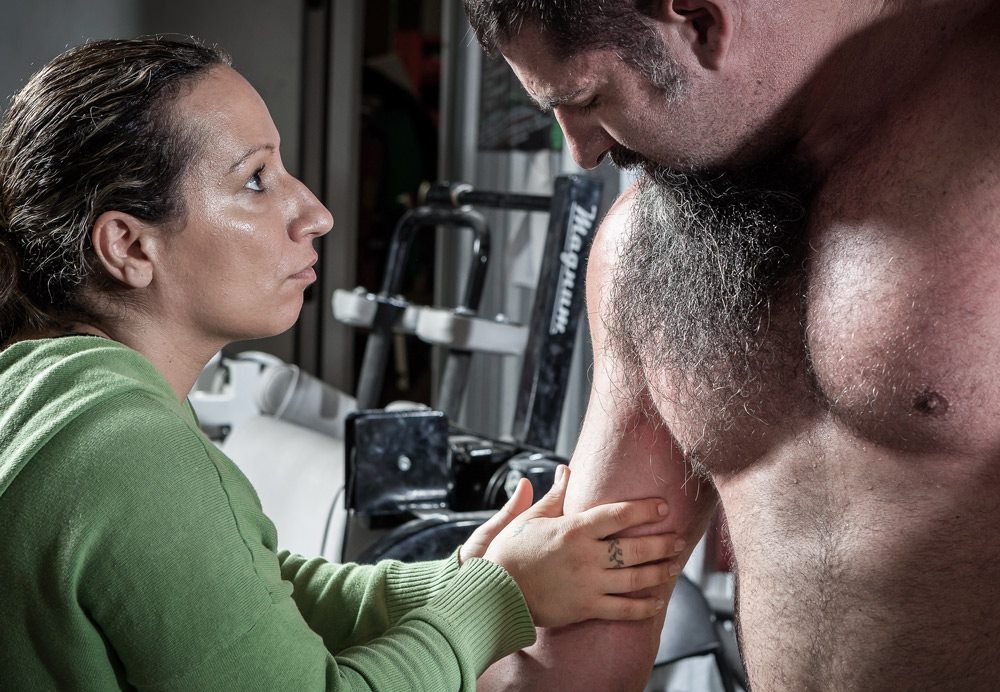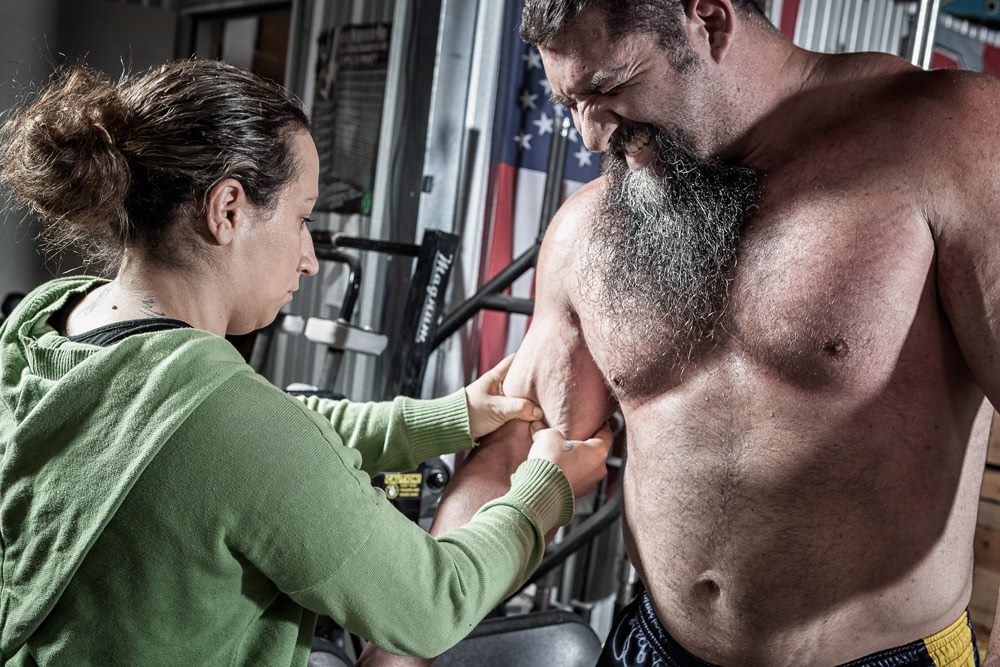
What we think about, and how we think, is what we give power to.
I have a few articles half written, but none that I’m really ready to send out or feel good about publishing yet. I put a lot of pressure on myself to write something of quality to the point that I probably spend more time thinking about how all of my writing is wrong, rather than moving forward and changing what needs to be changed. There’s this nagging feeling that I don’t deserve the opportunities I’ve been given to be part of this team of incredible individuals, and that fear goes so far as to drive a course of inaction. There’s a thought that maybe I don’t have anything of substance to write about; if my writing doesn’t change lives, save starving children, give sight to the blind, and defy basic laws of physics, I clearly don’t deserve to be here, and the more I write, people will find out how unqualified I really am.
RECENT: Assessing Your Dysfunction — Finding Why
We all have our things about this industry that get under our skin a bit. I was talking with one of the team members the other night and he mentioned how quick people are to vocalize those thoughts but are so rarely willing to actively do/become something different. It’s something I’ve heard a million times (“be the change”) but something about our conversation got me kind of emotional about it. I really care about women in this sport. I mean, really, really care, and my passion for seeing people not hurt and give them a part of their life back isn’t just a “passion” in the overused sense. It's my heartbeat, because I so deeply believe that how we feel physically plays a tremendous role in how we do life; how we interact with our kids, our family, our friends, patients, customers, clients, whoever. When it comes to all this feely softness, the things that grate at me are things that ultimately work against feelings of empowerment, value, and drive that I hope to be a part of with people.
Two things that get under my skin:
- The bro turned rehab "expert," or even those who mislead athletes with very little practical knowledge or experience. He fails to acknowledge the deeper parts of injury, mechanics, and movement that are part of genuinely advanced study. This is the guy that actually makes things worse for people unintentionally because he lacks full understanding but speaks with authority. The more I learn, the more gaps in my knowledge I identify and become more careful with my words, even with extensive education. Bro and I are classic oil and water.
- The over-sexualization of women without being “oversexualized” (or only when convenient) has become touting of progress with a “like it or not” attitude. This is hard to address, but it’s the elephant in the room that we need to acknowledge eventually. Progress—REAL progress—is worth celebrating, 100%, and I’m in your corner celebrating with you. There’s a genuine difference between searching for approval, and celebrating the progress you’ve made after hard work as a reflection of discipline and resolve. Making a stand for positive body image is hugely important in our industry, and incredibly necessary, but the more we talk about it, we’re still admitting that it carries an excessive amount of weight in our self worth; it’s still consuming our thoughts. I can’t remember the last time someone said “hey, check this girl out, she’s got some great ideas and might be someone worth teaming up with." But we’ll use a peach emoji every chance we get. That bothers me. A lot.
So, those two things. The more I think about it, the more I see that the two are sort of related in where my passion lies: I notice that there are a LOT of bro-rehab experts, and not a lot of women. Actually, one, maybe two that I can think of are women, though most PT programs report a higher percentage of female students. Granted, social influences may naturally bring more men to this sub-specialty, but it cannot be ignored that when you think strength training and rehab, the first 8-10 names you think of are probably dudes, some with decades of experience under their belts (names like Bill Hartman, Charlie Weingroff, Mike Robertson, and Eric Cressey come to mind). With regard to female voices that command respect for their expertise, there are only a handful — Julia Ladewski is one of the most flat out badass women I’ve met in her level of competency, mental fortitude, and physical strength, but even she doesn’t get the amount of respect that I think she deserves.
The teammate that I spoke with about actively becoming something different challenged me; I sit here and talk about how much certain voices do more harm than good, but am I willing to put myself out there to produce something of value? Am I willing to quit waiting until I feel ready?
What we present to others as valuable about us becomes the value we see in ourselves. It becomes where we find worth. And man, I think there’s a lot of room for growth in that, especially in this industry.
“You have the knowledge, why don’t you start to be that?”
Dude, really? Did you have to put the ball in my court like that?
I’ve been asked that probably a dozen times in the last few months, especially after going public with my, “I fixed my hip and it doesn’t hurt anymore.”
I didn’t really have an answer. I keep saying it’s because I’m too busy. And I have been…incredibly busy lately. But that is a flat out lie, more to myself than anyone else. The truth is that I am scared. I'm scared of being “found out” I’m not as smart others think I am, as a fraud, that I don’t have the secret reiki massage knowledge, that I don’t actually know what I’m doing, and that any success I’ve had has been just a product of luck rather than competency. It got me wondering how many other women might have tremendous expertise that are unused and bottled, tucked nicely on the shelf behind a photo of fear and inadequacy holding hands at Disney World.
A good friend of mine called me out pretty hard recently.
“You need to quit telling yourself you’re incompetent just because you’re surrounded by people who are multiple decades ahead of you in clinical practice and coaching. You are surrounded by the best of the best in everything you’re doing. You should feel like your knowledge doesn’t match theirs yet.“
That same week, my clinical mentor and I were having a conversation and he slipped in a comment about wanting to fit decades of practice experience into a few months. That was the second time that week someone had put “decades” into perspective for me. My feeling of being unequipped was already jet-puffed marshmallow man sized, made worse because I was comparing my base to those that I consider the best. Hello, expectation, but it’s just how I'm wired.
I’m a classic overachiever: overworker, hyperfocused, and too driven to figure out “the best” solution. It’s enslaving; I can’t look at something without realizing the imperfections and obsessing over how to make it “better.” And if it can be made better, I failed. Slowing down to learn “less” and enjoy life more means I’m going to be more behind than I was originally, and my doubt drives me to work harder and find more answers. My perfectionist tendencies dissect competent and GOOD work. No amount of praise or reassuring from my mentors changes that thought.
RELATED: Conquering the Fear of Failure: Voices of Influence
There is a tremendous feeling that at some point, people are going to realize all the shortcomings I see in myself. No matter how much success I have day to day, with tangible evidence that I do in fact know a few things, I always tend to brush it off as luck. I feel entirely undeserving of the opportunities presented to me and constantly worry that at some point, I’m going to be “found out” that I’m not as smart or capable as people think I am. Things I’ve accomplished, knowledge absorbed, degrees or records earned: all because I got “lucky,” or knew the right people that wanted to do me a favor that backfired and just set my standard even higher. I freak out when I talk to Dave about anything PT related, and working with some of the athletes on the team is a push for me to actually just do what I know is right. I have a feeling Dave knows this (if he didn’t he does now). It’s prevented me from jumping on a lot of opportunities.
But every time I do get out of my comfort zone…it goes well. Very.
So all that ugliness above: that’s the real reason I won’t act to become a very small part in the solution to what I think we need. I’m just pathetically scared of success because I feel entirely incompetent 90% of the time, and the reason I’ve been chosen to become part of these teams I’m on has nothing to do with my own merit. There’s even an idea that maybe these people just felt sorry for me. Ridiculous, right? But real.
Apparently this is a common enough theme that there’s a name for it: impostor syndrome. Copied and pasted from Wikipedia below.
High-achieving individuals marked by an inability to internalize their accomplishments and a persistent fear of being exposed as "fraud".[1] Despite external evidence of their competence, those exhibiting the syndrome remain convinced that they are frauds and do not deserve the success they have achieved. Proof of success is dismissed as luck, timing, or as a result of deceiving others into thinking they are more intelligent and competent than they believe themselves to be.
The more I looked into this term, I realize how much I am not alone in this. An estimated 80% of high achieving females and 70% of high achieving males struggle with these thoughts. More than that, “studies” (though I couldn’t find them) show that women are more likely to attribute their success, big or small, to extrinsic factors like luck. Men, on the other hand, tend to refer to inner qualities that instill an unspoken praise, such as talent and drive. Women are likely to paint failures as a result of a personal flaw or personal role in a situation, where men are likely to attribute failures to external circumstances beyond their control. I see this playing out in myself in a few ways. I will intentionally avoid external success because it will continue to set the bar higher. For someone who already is pretty convinced luck is what has allowed her to appear successful, the idea of setting the bar higher is heightening the fear. As much as this annihilates any chance of complacency, the opportunities I have passed up because of this haunt me a bit. Meanwhile, I can’t help but wonder if maybe this is a component of why there are so many dudes out there claiming expertise that may or may not actually be there, and why so few women can speak with a quiet confidence that offers a starting point, even if not absolute.
I don’t think we’re all that much different in how we compete, either. Most people that have a phenomenal meet will have some sort of anxiety about coming back onto the platform in fear that they won’t improve upon what they built last time; it leaves you second guessing if the great meet you had is a true reflection of your ability.
There’s a lot of writing available about impostor syndrome, and the more I reflect on it, I realize how much I have permitted this fear to dictate to the extent to which I engage in certain opportunities or cultivate a niche for myself as an educated, strong ass woman who wants to get you healthy. And at the same time, I’m sitting here complaining that we don’t have enough women that are established in their identity and knowledge base. Hi, kettle. It’s me, pot, and I’m calling you black.
I’m pretty sure that if my goal is to actually help people, and I DO have some knowledge and experience that can, my fear of misleading anyone has been entirely counter productive to my goal.
Just because you do not know “everything,” does not mean that your experiences and knowledge aren’t valuable and will not prove to carry weight for someone that may need it. Perspective: talking to an astrophysicist without a basic understanding of physics 101 isn’t going to communicate anything actionable, anyway.
I think there are a few key elements to address with this. Self acceptance, for one. Until I really believe that I don’t have to attain perfection in order to have worth while mastery, the idea of striving to have “earned” opportunities or become “good enough” will continue to drive me, and likely others. Resetting the bar from perfection to tangible growth, reframing wins, and being more gentle with myself are difficult tasks for me. But if I want to grow as a professional, start carving a bit more of a niche, and developing a recognizable voice, “playing safe” shelters me from exposure, but also forbids the benefit that may be brought to others. At the end of this, the things we think about and where we find our worth is what we give power to. There’s a choice in that, and we would be wise to be intentional in how we define our worth and the thoughts that we think. Those thoughts become second nature so quickly, so sneakily, and so easily; you won’t realize that you’re thinking them, but they will change how you interact with people.
I don’t know, maybe I’m the only one that really struggles with this. But if that’s the case, it doesn’t bode well for women in this sport or industry. I urge you, men AND women who are quicker to identify their shortcomings and weaknesses more than competencies, to start slowly, and still humbly, speaking up appropriately. Just because you do not have ALL the knowledge, does not mean that your knowledge and experiences are incapable of helping those around you.
People are everything, and there is power in interaction. I regret what I kept thinking in fear.
“Be very careful what you think, for your thoughts will run your life.”













Why do we do this?